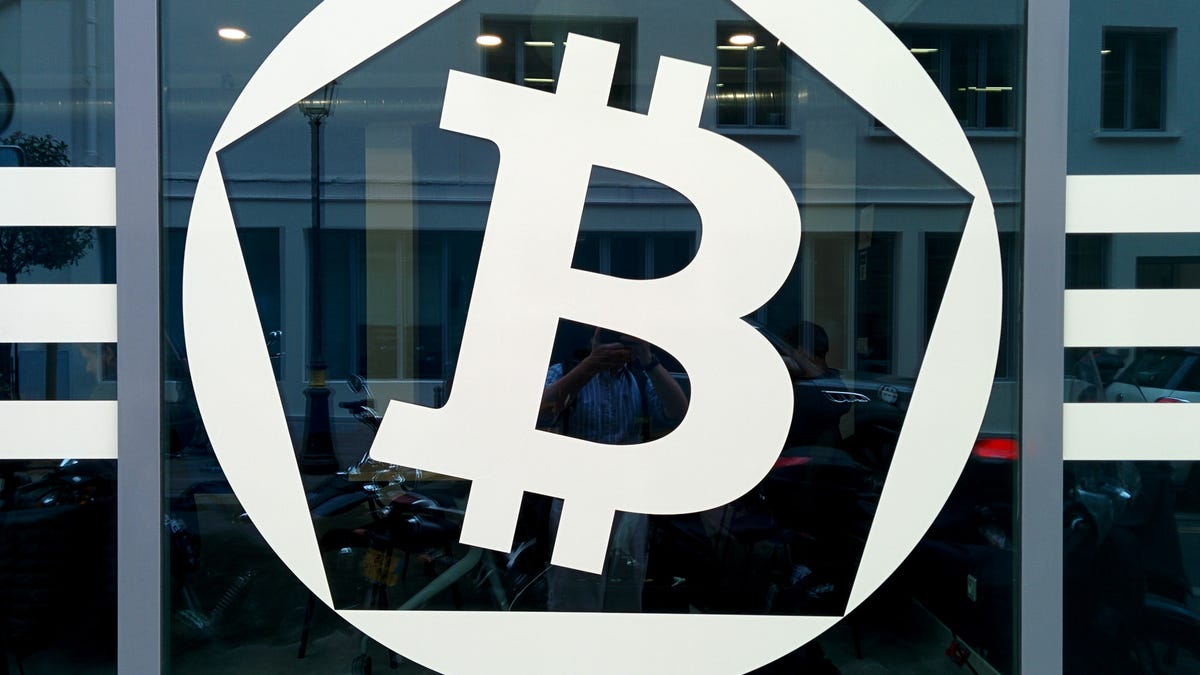Maybe you'll buy coffee with cryptocurrency after all
Startup Flexa's cryptocurrency payment network get big names like Crate and Barrel, Nordstrom, Whole Foods, Barnes & Noble -- and yes, Caribou Coffee.

La Maison du Bitcoin in Paris, France
And you thought the idea of using cryptocurrencies like bitcoin to buy stuff was dead.
A startup called Flexa has some of America's biggest retail brands to use its payment-processing network that'll let you buy stuff with cryptocurrency.
Among them: Barnes & Noble, Baskin Robbins, Bed Bath & Beyond, Caribou Coffee, Crate and Barrel, Jamba Juice, Lowe's, Nordstrom, Office Depot, Petco, Regal Cinemas and Amazon's Whole Foods Market.
That's something of a surprise given the fizzled excitement around next-gen digital money. Instead of revolutionize finance, freeing us from central banks' controls and bringing payments into the internet age, cryptocurrencies mostly just turned into an investment people hoped would soar in value.
Flexa, though, is trying to get people to open their digital wallets.
"We allow any cryptocurrency to be spendable," Chief Executive Tyler Spalding said. The company launched its payment-processing network Monday.
Its big selling points so far are for retailers: a transaction fee between 1% and 2% -- cheaper than credit cards, it expects -- and system that gets retailers their payments in ordinary money without ever having to touch cryptocurrency. Cryptocurrency's intrinsic blockchain-based accounting system will squelch the transaction fraud that retailers hate, too, Spalding said.
Shielding retailers from cryptocurrency complications is important. Some big barriers to cryptocurrency payment systems today include the difficulties of identifying exactly who's paying and the long wait for cryptocurrency transaction completion, said Linda Pawczuk, blockchain leader for Deloitte Consulting.
To use Flexa's system, you need a digital wallet with Flexa, though later the company plans to integrate with wallets at popular cryptocurrency exchanges like Coinbase. You select the appropriate retailer from a list in Flexa's app, which then shows a QR code the retailer scans with its existing sales terminal hardware. Flexa debits your wallet then transfers US dollars to the retailers by regular old bank transfer, Spalding said.
Funding a cryptocurrency wallet and fiddling with an app at the store -- to say nothing of making sure you're properly accounting for your cryptocurrency values for filing your taxes -- will deter some ordinary consumers. But Flexa expects to make transactions easier for consumers, so they also need not know they're fooling with cryptocurrencies. The rise of "stable coins" that don't appreciate in value should help, Spalding said.
"This is the bridge. This is how it goes mainstream," Spalding said.
Maybe, maybe not. But cryptocurrency payments today could be like the early days of digital photography when people still printed their pictures, said Amy Zirkle, interim CEO of the Electronic Transactions Association trade group.
"We could envision same evolution in digital currency," she said, though likely not for five to 10 years. "That's where all the R&D is happening and where the deeper examinations are taking place."

